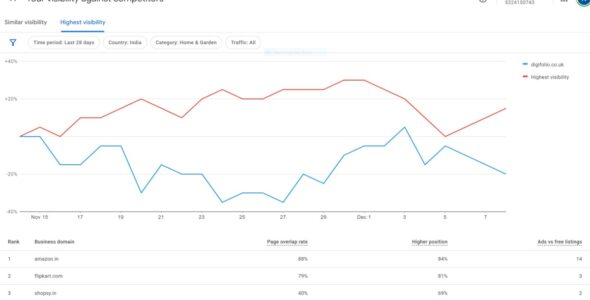Real Estate Market Segmentation: Targeting the Right Audience
In the competitive real estate industry, effective marketing strategies are essential for success. Market segmentation is a powerful tool that allows real estate professionals to divide their target market into distinct groups based on specific characteristics and preferences. By understanding the unique needs and preferences of different segments, real estate professionals can tailor their marketing efforts to target the right audience and drive higher engagement and conversions. In this blog post, we will explore the importance of real estate market segmentation and the key steps involved in effectively targeting the right audience.

The Importance of Real Estate Market Segmentation
Market segmentation is crucial in the real estate industry for the following reasons:
1. Personalized Marketing: Segmenting the market enables real estate professionals to create personalized marketing messages that resonate with each audience group, increasing the chances of capturing their interest and engagement.
2. Efficient Resource Allocation: By focusing resources on specific target segments, real estate professionals can optimize their marketing budget and efforts, ensuring a higher return on investment.
3. Enhanced Customer Experience: Understanding the unique needs and preferences of different segments allows real estate professionals to deliver a tailored customer experience, fostering trust and loyalty among clients.
4. Competitive Advantage: Effective market segmentation can help real estate professionals identify niche markets and gain a competitive edge by catering to underserved segments.
Steps for Effective Real Estate Market Segmentation
1. Data Collection and Analysis: Gather relevant data from various sources, including surveys, website analytics, social media insights, and customer feedback. Analyze this data to identify patterns and characteristics that differentiate different audience groups.
2. Define Segmentation Variables: Determine the segmentation variables that are most relevant to your real estate business. These variables can include demographics (age, income, family size), psychographics (lifestyle, interests, values), and behavior (buying preferences, past interactions with your business).
3. Create Segments: Based on the identified variables, group your target market into distinct segments. Ensure that each segment is meaningful, accessible, and large enough to warrant targeted marketing efforts.
4. Develop Buyer Personas: Create detailed buyer personas for each segment. These personas should encompass a fictional representation of the typical customer in that segment, including their goals, challenges, preferences, and pain points.
5. Tailor Marketing Messages: Craft marketing messages and content that speak directly to the needs and interests of each segment. Address the unique pain points and highlight how your real estate offerings can fulfill their specific requirements.
6. Choose the Right Channels: Identify the most effective marketing channels to reach each segment. This may include online platforms, social media, email marketing, direct mail, or in-person events.
7. Monitor and Adjust: Continuously monitor the performance of your marketing efforts for each segment. Analyze the results and make data-driven adjustments as needed to optimize your strategies.

Conclusion
Real estate market segmentation is a powerful tool that allows real estate professionals to effectively target the right audience with personalized marketing efforts. By understanding the unique needs and preferences of different segments, real estate professionals can tailor their messages and strategies to resonate with their target audience, driving higher engagement and conversions. Through data collection, analysis, and buyer persona development, real estate professionals can gain valuable insights and gain a competitive advantage in a crowded market. By consistently monitoring performance and making data-driven adjustments, real estate professionals can ensure that their marketing efforts remain relevant and effective for each audience segment.






[…] Real Estate Market Segmentation: Targeting the Right AudienceIn the competitive real estate industry, effective marketing strategies are essential for success. Market segmentation is a powerful tool that allows real estate professionals to divide their target market into distinct groups based… […]